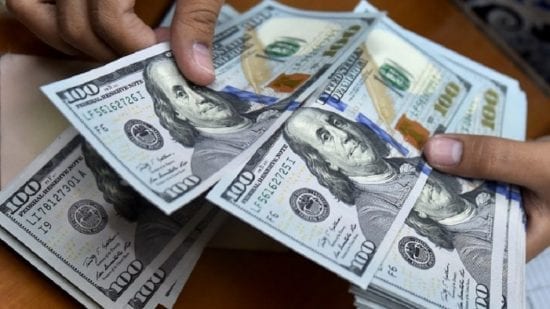The exchange rate did not improve despite Syria’s participation in the recent Arab summit. On the day Syria received the invitation, the dollar initially fell against the Syrian pound, reaching 8,900 pounds in the morning, but later rose to 8,950 pounds in the evening.
The lira continued to fluctuate the following day, experiencing both rises and falls. However, on May 17th, the lira began to rise again, reaching a price of 8,650 pounds against the dollar by the end of Thursday, which coincided with President Bashar al-Assad’s arrival in Saudi Arabia.
Wrong betting
According to banking expert Amer Shahda, political events do not influence the exchange rate, and it would be incorrect to rely on such factors to improve it.
Shahda explained that the exchange rate only experiences changes when the Arab League issues a statement expressing disinterest in unilateral sanctions imposed on Syria, and when Arab countries actively support and contribute to the reconstruction efforts. In such cases, the exchange rate tends to decrease.
Additionally, Shahda emphasized that restructuring the central bank and appointing competent individuals with expertise in managing the money supply within the Syrian market can also impact the exchange rate.
He advised against placing bets on external factors or relying on others to bring about changes in the exchange rate or economic situation.
Shahda concluded by stating that the responsibility for improving the economic situation lies within the country itself and that there is no need for arrogance. It is crucial to acknowledge that saving the economy is an internal matter that requires self-awareness.
Our problems are internal
Economist George Khozam commented on the lack of improvement in the exchange rate despite the favourable Arab and regional conditions. He attributed this to internal issues, stating that the primary problem lies in our ability to stimulate the economy effectively.
Khozam pointed out that if we were to open up to Gulf countries, we would face challenges due to the lack of competitive products in terms of quality and price. This is a result of high production costs, mismanagement of national resources, and the mishandling of the crisis economy.
Consequently, Khozam noted that these factors have led to capital flight, as well as the migration of industrialists and traders to foreign countries.
Continuous rise
Khozam predicts that the price of the dollar will keep increasing regardless of the amount of hard currency aid available, as long as it is not sold in the market. He further explains that the central bank’s decision to withhold selling it in the market will contribute to the continuous rise in the dollar’s price.
Imaginary height
Khozam highlighted that any sudden surge in the black market exchange rate of the dollar is temporary and will be swiftly followed by a sharp decline back to its initial level. As an example, he mentioned that the dollar rose from 8,300 pounds to 9,300 pounds within a week but then quickly fell back to 8,300 pounds within three days. He characterized this as a speculative operation aimed at exploiting the Syrian pound, resulting in profits for some at the expense of Syrian citizens’ savings and the devaluation of the Syrian pound.
Disastrous policies
Khozam emphasized that the current economic situation and the depreciation of the Syrian pound can be attributed to the Central Bank’s previous decisions to impose market restrictions. He had previously warned about these consequences a year and a half ago, considering the Central Bank’s financial policies “catastrophic.”
He cited several detrimental decisions that have negatively impacted the economy. One such decision was setting a limit on daily bank withdrawals, which resulted in a halt in deposits and increased withdrawal of funds. Additionally, these policies pushed traders towards conducting transactions in dollars due to their portability, consequently driving up the demand for the dollar and causing its price to rise against the Syrian pound.
The only solution
Khozam firmly states that the key solution to enhance the exchange rate of the Syrian pound lies in increasing exportable production and reducing dependence on imports. This approach would help save dollars for the public treasury. Furthermore, he suggests that a portion of foreign transfers should be delivered in dollars to augment supply in the black market. By implementing these measures, the overall availability of dollars would increase, positively impacting the exchange rate of the Syrian pound.
This article was translated and edited by The Syrian Observer. The Syrian Observer has not verified the content of this story. Responsibility for the information and views set out in this article lies entirely with the author.


